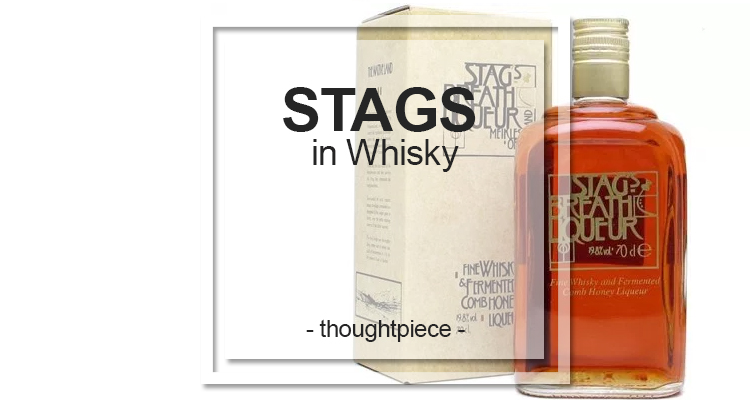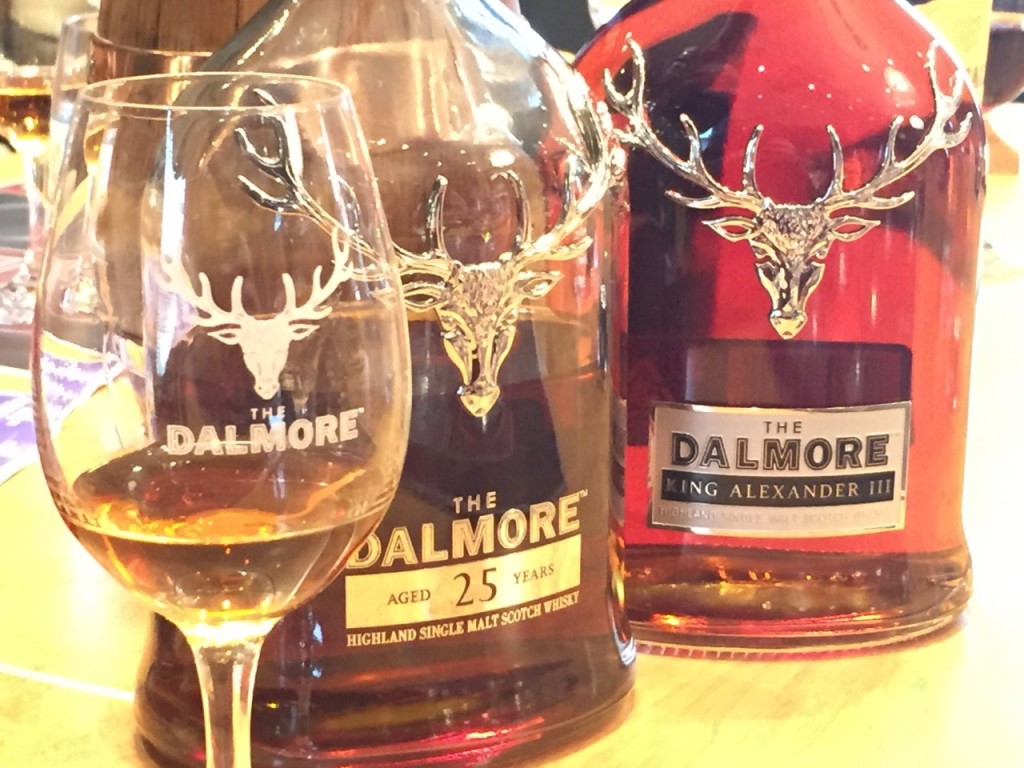Stags in Whisky
Contributed by on Jul 05, 2018
Four readers love this post.

Stags feature in myths and legends all around the world. From pop culture to folk tales, they are everywhere, right across the globe. Here I explore iconic stags in whisky.
They even saw a comeback in the fashion world when the recent hipster trend made an appearance, with everything from tattoos to coffee cups adorned with the classic stag silhouette.
But well before the hipsters got their flannel shirted hands on the antlered beasts, Stags were a symbol of national pride throughout Scotland.
Scotland is the native home of both the red deer and the roe deer, and these have become important symbols for the country and its history.
These deer have become iconic in Scotland, and as well as encouraging tourism in some of the more remote parts of the Highlands, they also increase biodiversity and are a natural food source.
Red deer and roe deer are also joined by fallow and sika deer, who are native to the Mediterranean and Japan respectively, have made Scotland their home after some controlled release and some not so controlled escapes from country parks.
Deer have also had a great impact on Scottish myths and legends, with stags appearing through out history. One of the earliest accounts of the mythicism of deer is in the Celtic legend of the goddess Flidais.
This goddess was worshipped across Ireland and Scotland, with there also being evidence of two pre-Celtic cults that existed to worship both her and deer themselves.
If that's not badass enough, Flidais also had the ability to transform herself into a red or white deer at any moment.
And speaking of white deer, later Scottish legends also hold that King David I encountered a mythical white stag when hunting on a holy day.
Legend has it the King became separated from his men and met with a fearsome white stag. Impressively enough he was able to wrestle it to the ground but in doing so its antlers turned into a cross.
Of course it fled the scene and the king was left with the cross as a reminder of his near death experience, and also that holy days might not be the best time of year to go hunting.
These days Scotland has a much tastier national symbol, which is of course Whisky. But that does not mean that the two must remain separate, and in fact the stag is a common image to find in Whisky adverts and on labels.
Douglas Laing have a blend dedicated entirely to the Red Deer Stag simply called Scottish Stag. They describe the stag as “Down through the years a symbol of power and a magnificent sight to behold in its natural habitat of the Scottish mountains”, a testament to how iconic the stag has become.
Perhaps the two most famous examples of this are The Dalmore and Glenfiddich stags. These brands have had stags on their bottles for decades, and continue that tradition today.
While Glenfiddich use the stag as a representation of their birthplace and namesake, “Glenfiddich”, meaning “Vally of the Deer” in Gaelic, the Dalmore has a much more interesting story.
The Dalmore stag comes from the story of Colin of Kintail saving King Alexander III.
Whilst out on the hunt, the King was attacked by a stag, and instead of standing by and watching Colin, also chief of Clan Mackenzie, threw himself between the two, spearing the stag in the head while shouting “Cuidich ‘n’ Righ”, Gaelic for “Save the King”.
The king was so grateful he rewarded Colin and his clan by giving them lands and allowing them to use the 12 pointed Royal Stag as their crest.
Fast forward to 1867, when the Mackenzie brothers took over the Dalmore Distillery and the stag became took on a new meaning, as representation for one of the best Scotches on the market.
The post Stags in Whisky appeared first on GreatDrams.

